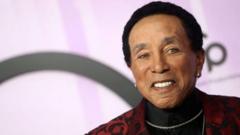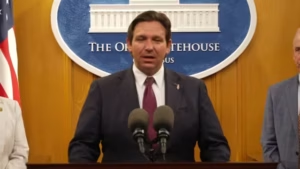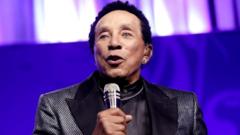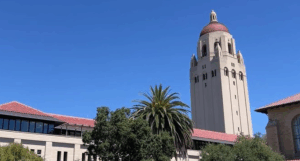The LA28 committee has partnered with Archer Aviation to potentially roll out an air taxi service for the 2028 Olympic Games, offering short flights to major venues, pending FAA certification.
LA 2028 Olympics to Introduce Air Taxi Service for Attendees
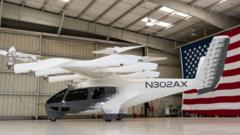
LA 2028 Olympics to Introduce Air Taxi Service for Attendees
Organizers aim for a futuristic travel option to mitigate traffic woes during the upcoming Olympic Games.
In a bid to alleviate Los Angeles' infamous traffic jams during the 2028 Olympic Games, the LA28 organizing committee has unveiled plans to partner with Archer Aviation for an innovative air taxi service. This venture aims to transport spectators quickly and efficiently, allowing them to soar above the congestion and reach venues in just 10-20 minutes. The announcement, made on Thursday, showcases a vision for a seamless mobility solution during both the Olympics and Paralympic Games.
While air taxi services have long been contemplated, previous attempts, including a planned introduction for the 2024 Paris Games, faced setbacks due to regulatory challenges. Archer Aviation's development has similarly encountered delays, as the company awaits certification from the U.S. Federal Aviation Administration (FAA). CEO Adam Goldstein expressed optimism about securing the necessary Type Certification this year, which will allow the aircraft's use for commercial flights.
The air taxis would operate similarly to popular ride services like Uber, with customers able to conveniently summon a ride through an app. Each fully electric aircraft can accommodate up to four passengers, taking off and landing in a manner reminiscent of helicopters. Pricing is yet to be determined, but Goldstein has indicated a desire to keep costs competitive with high-end ride-hailing options.
The Midnight aircraft, part of a promising new class known as eVTOLs (electric vertical takeoff and landing), is engineered for a quieter and more environmentally-friendly experience compared to traditional helicopters. Backed by industry giants like Boeing and United Airlines, Archer is among various innovators seeking to revolutionize urban transport, despite grappling with challenges around battery efficiency and regulatory opposition.
The introduction of air taxis at the LA28 Games could signify a turning point, reshaping transportation in America. Goldstein envisions a legacy that significantly alters how residents and visitors traverse Los Angeles. With the city already having hosted the Olympics in 1984 and 1932, the stakes are high for this third iteration, especially as plans to limit car usage in favor of innovative solutions like air taxis unfold. While European aspirations for flying taxis have faced financial constraints, Los Angeles may present a more promising backdrop for this transformative mode of transport.

